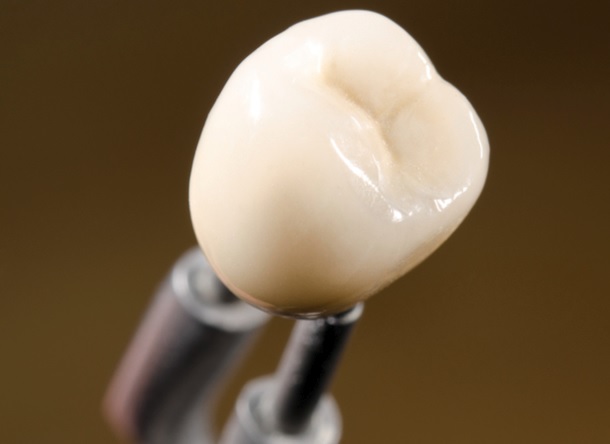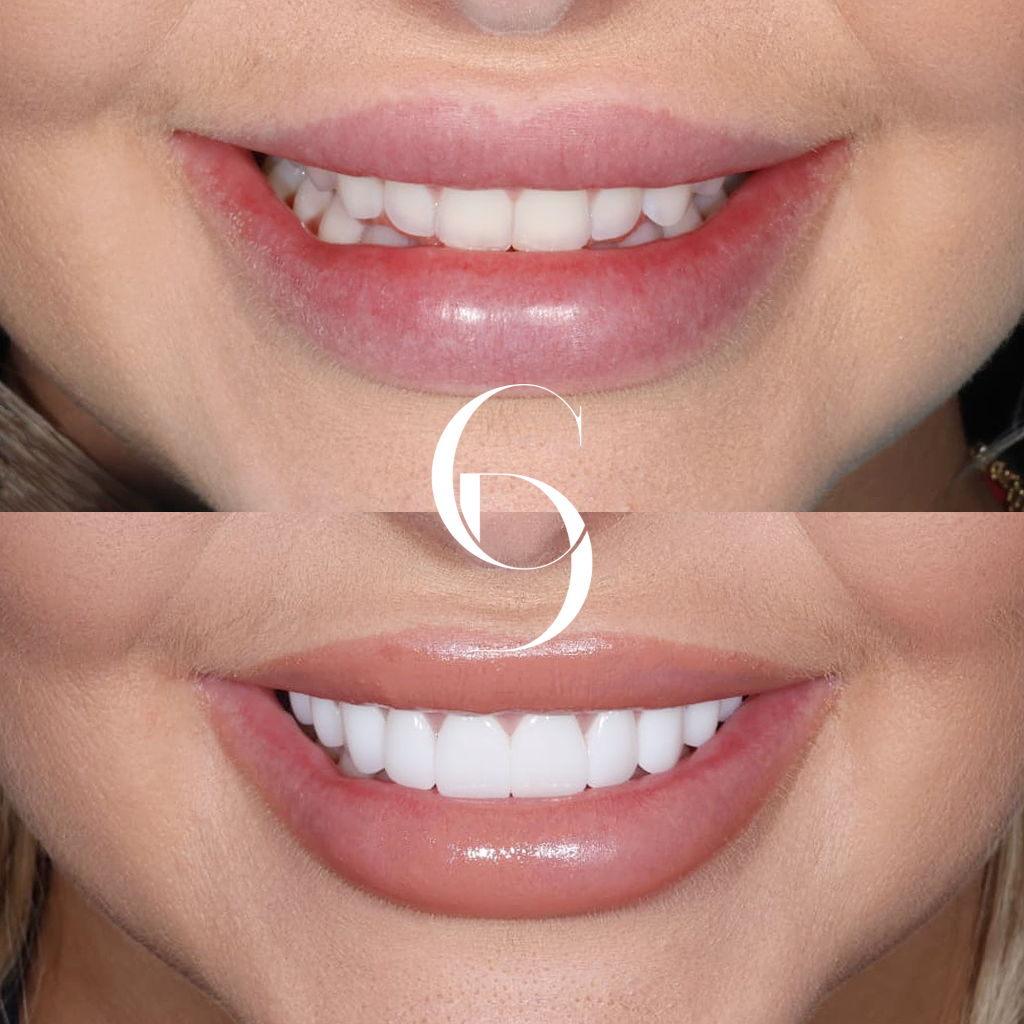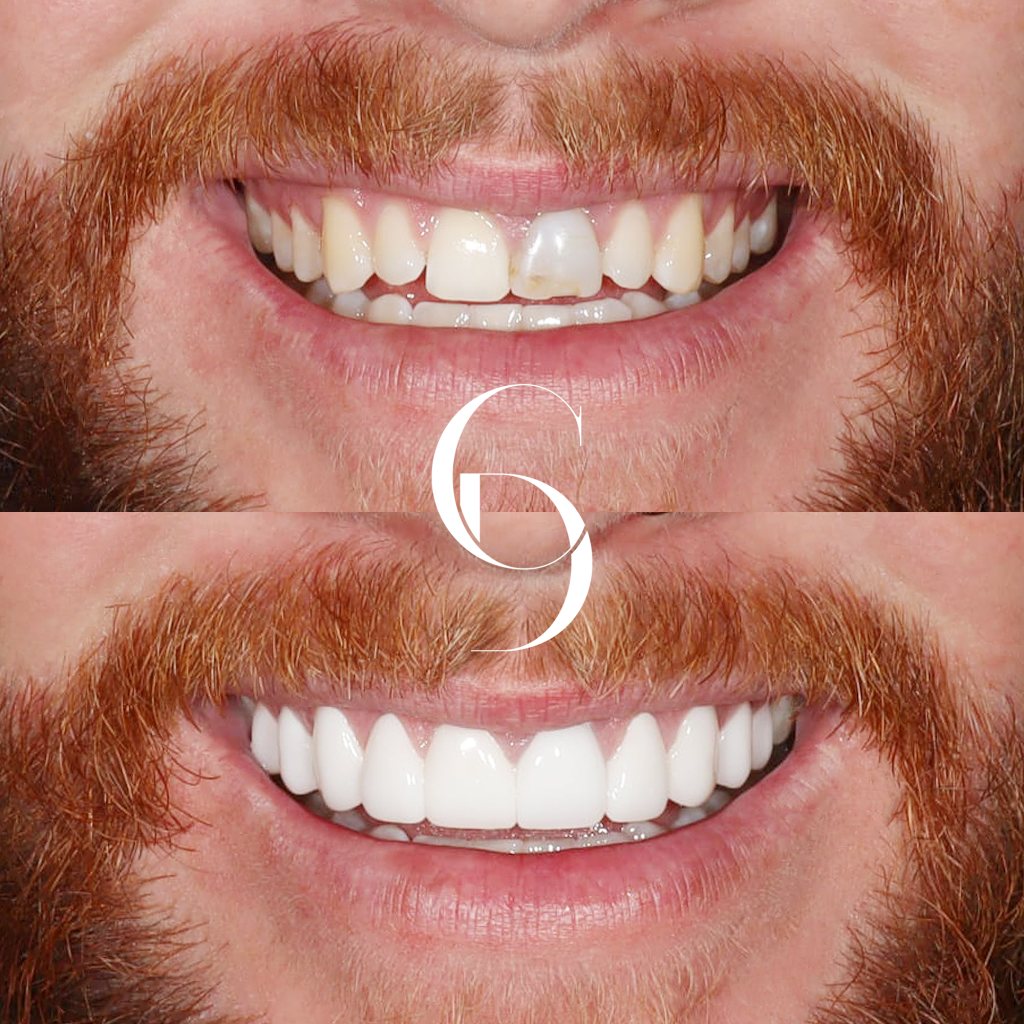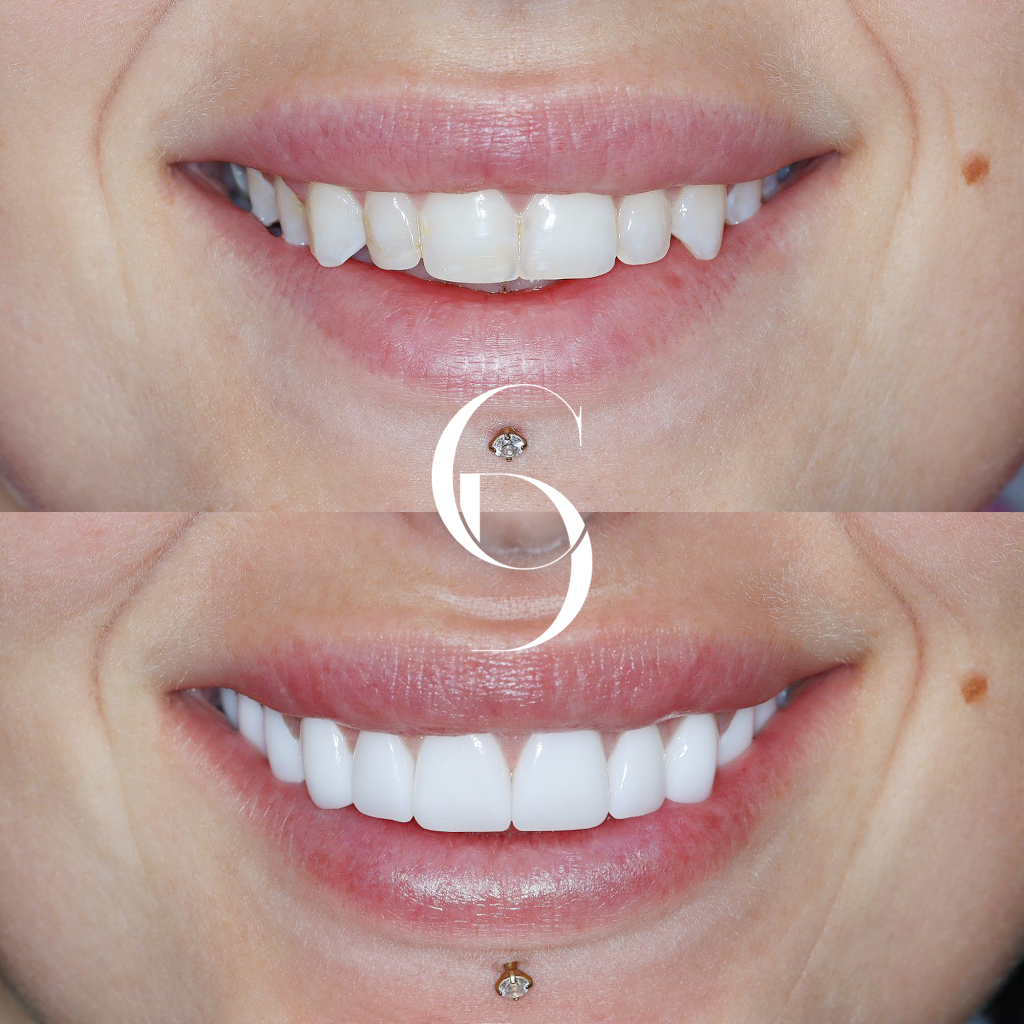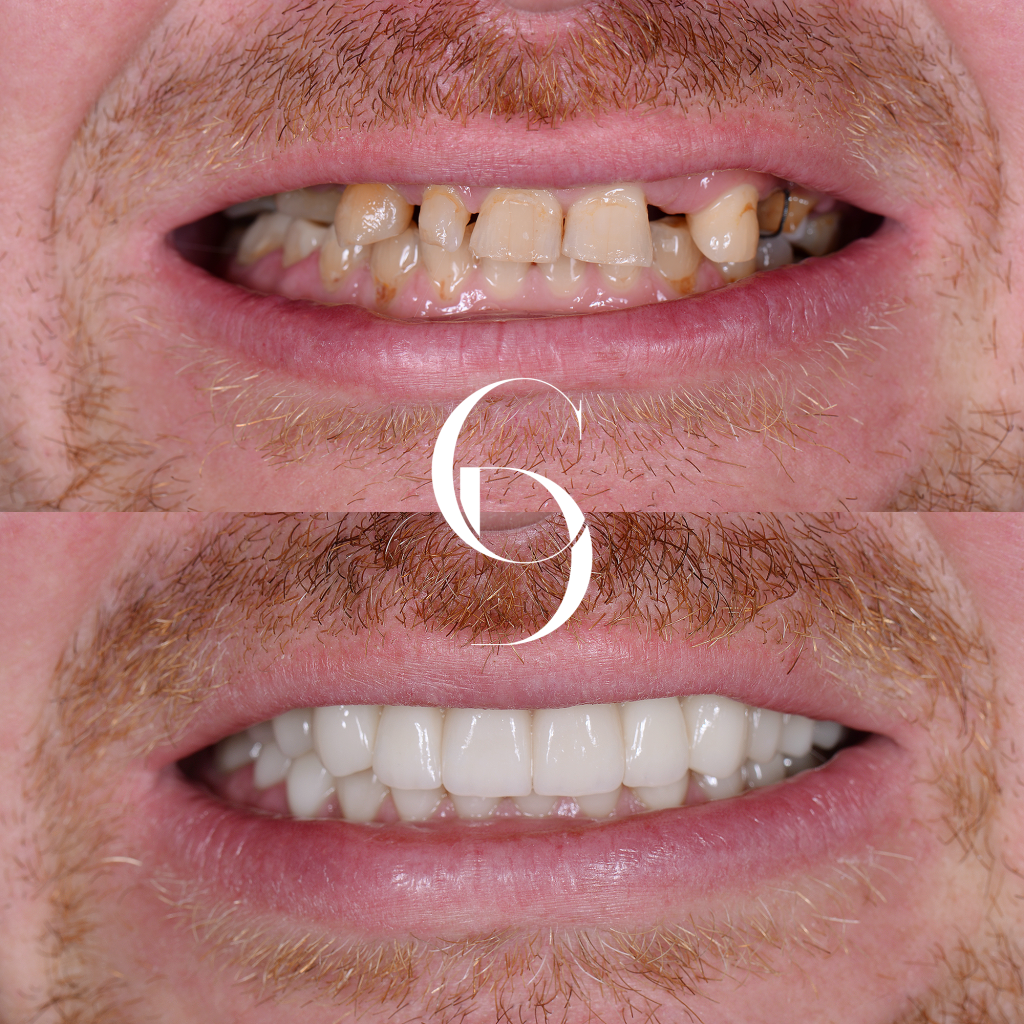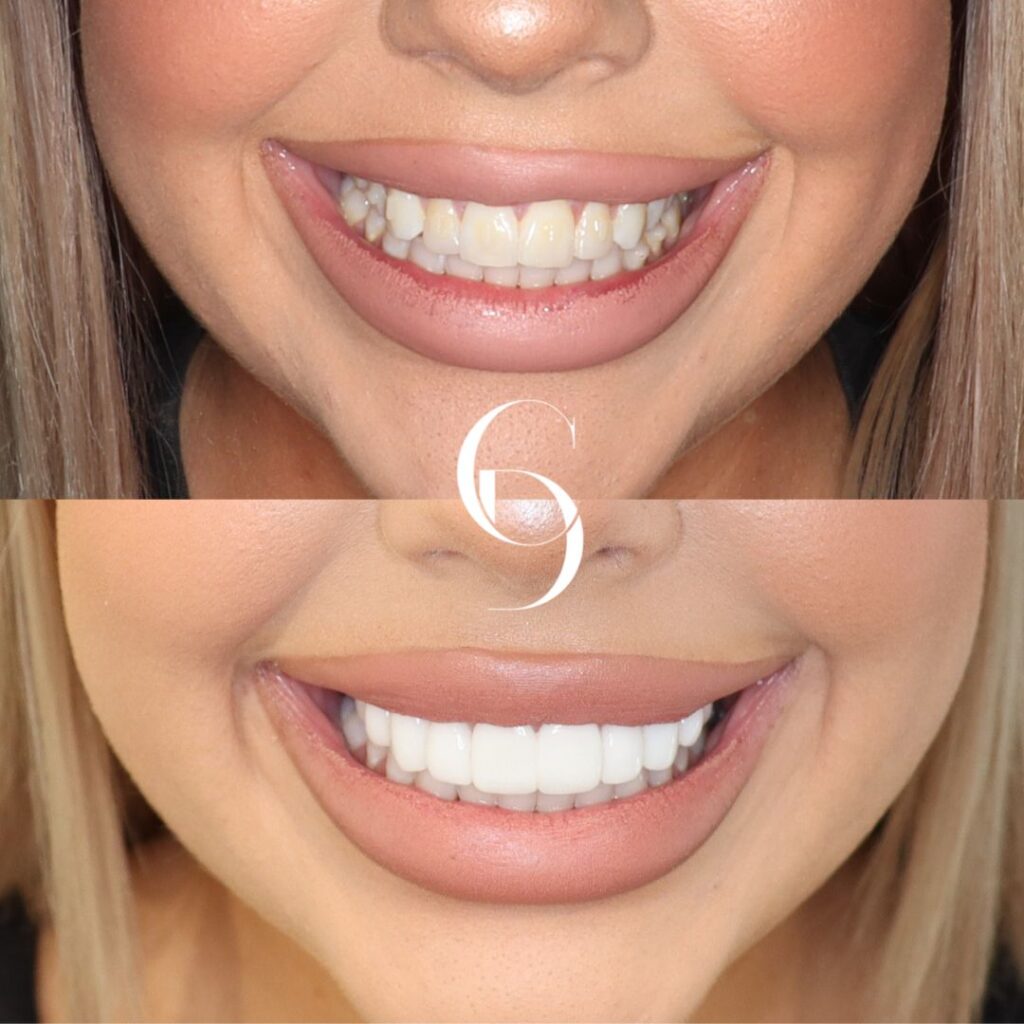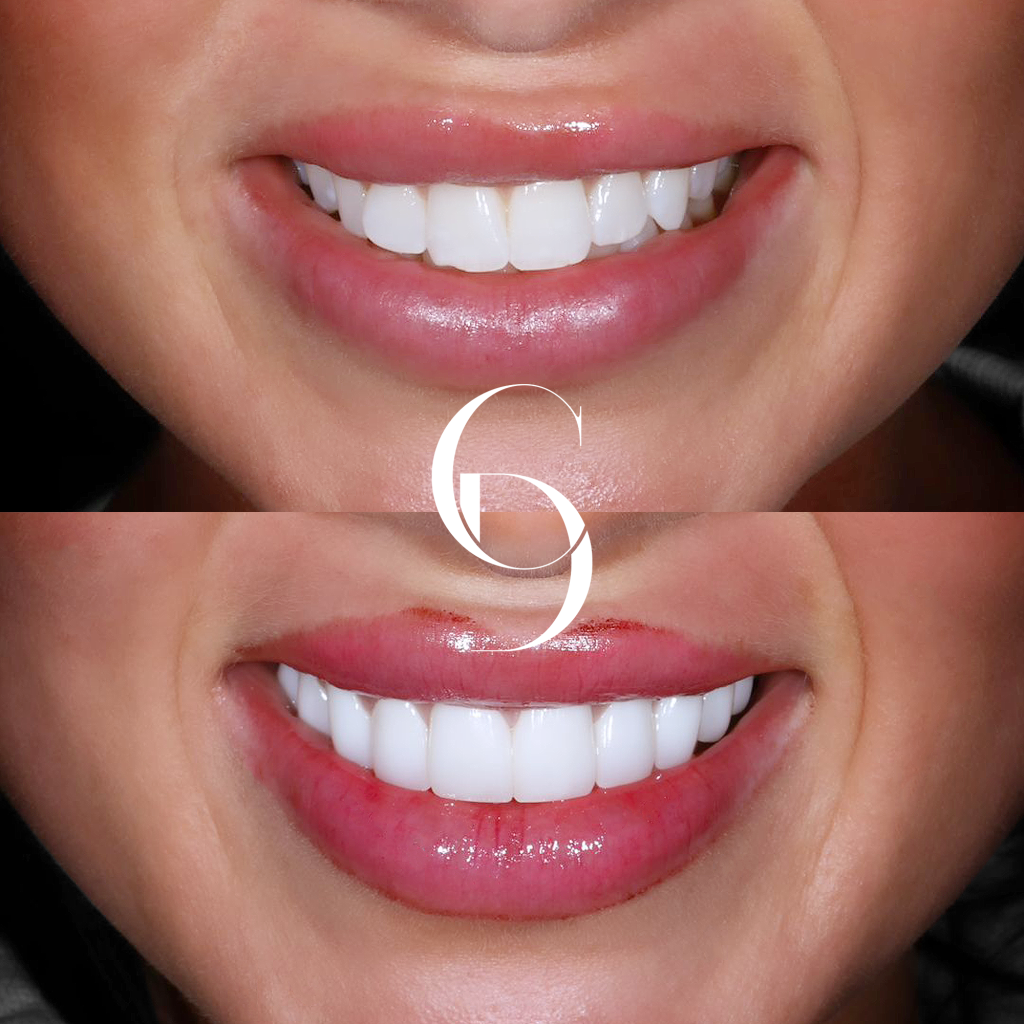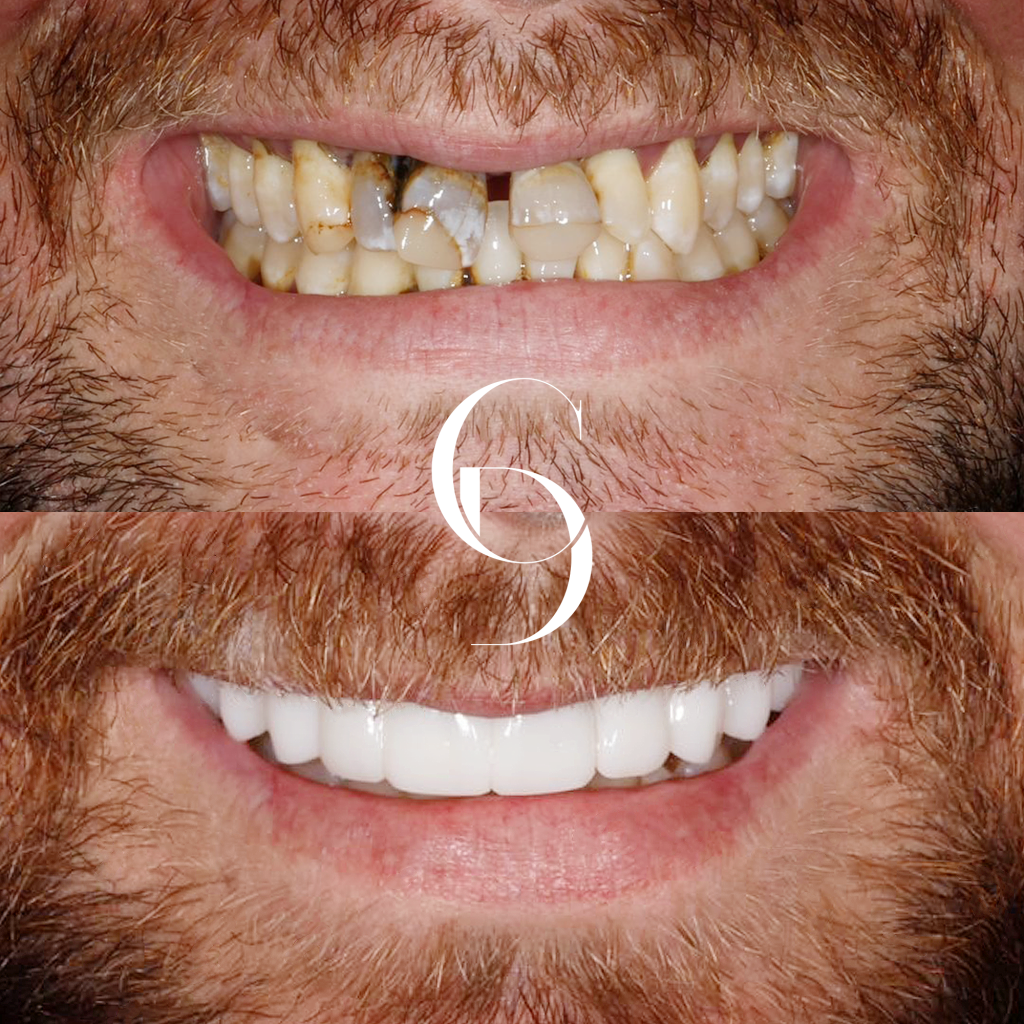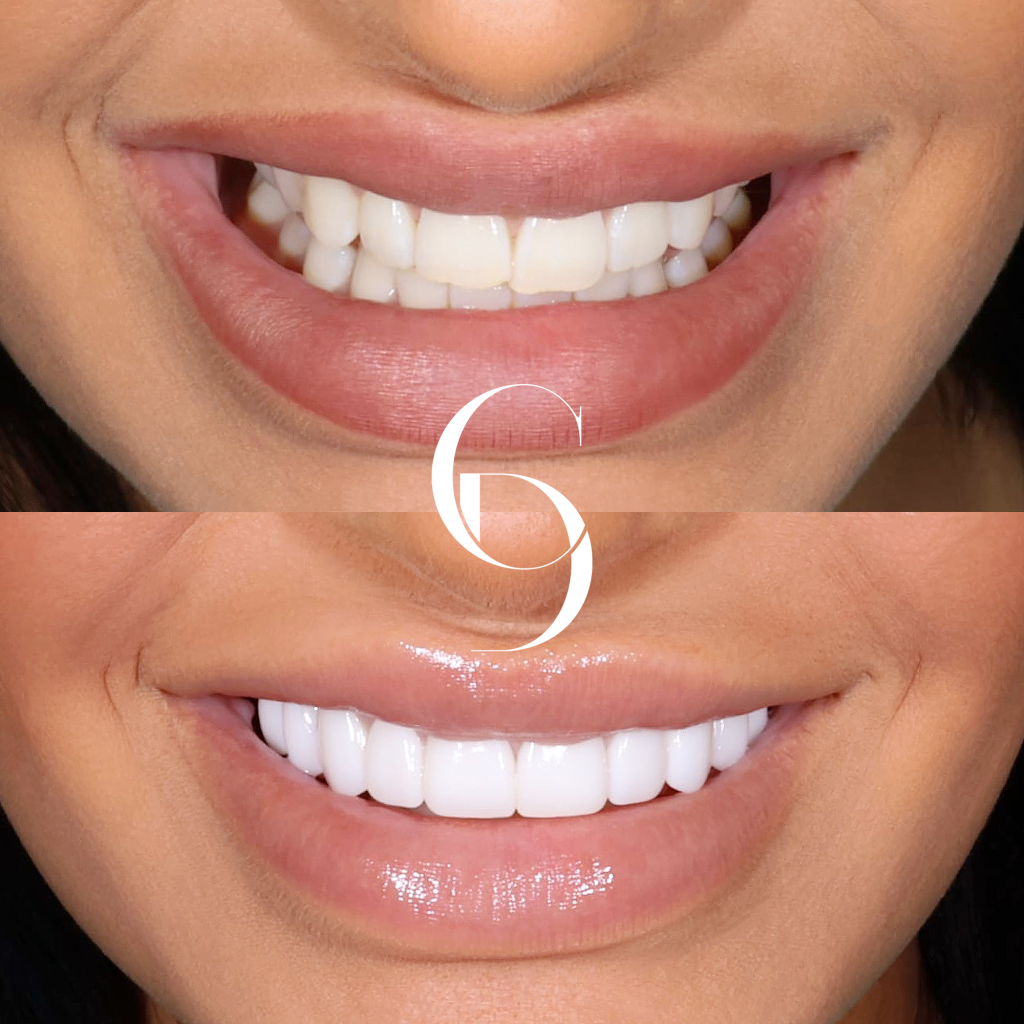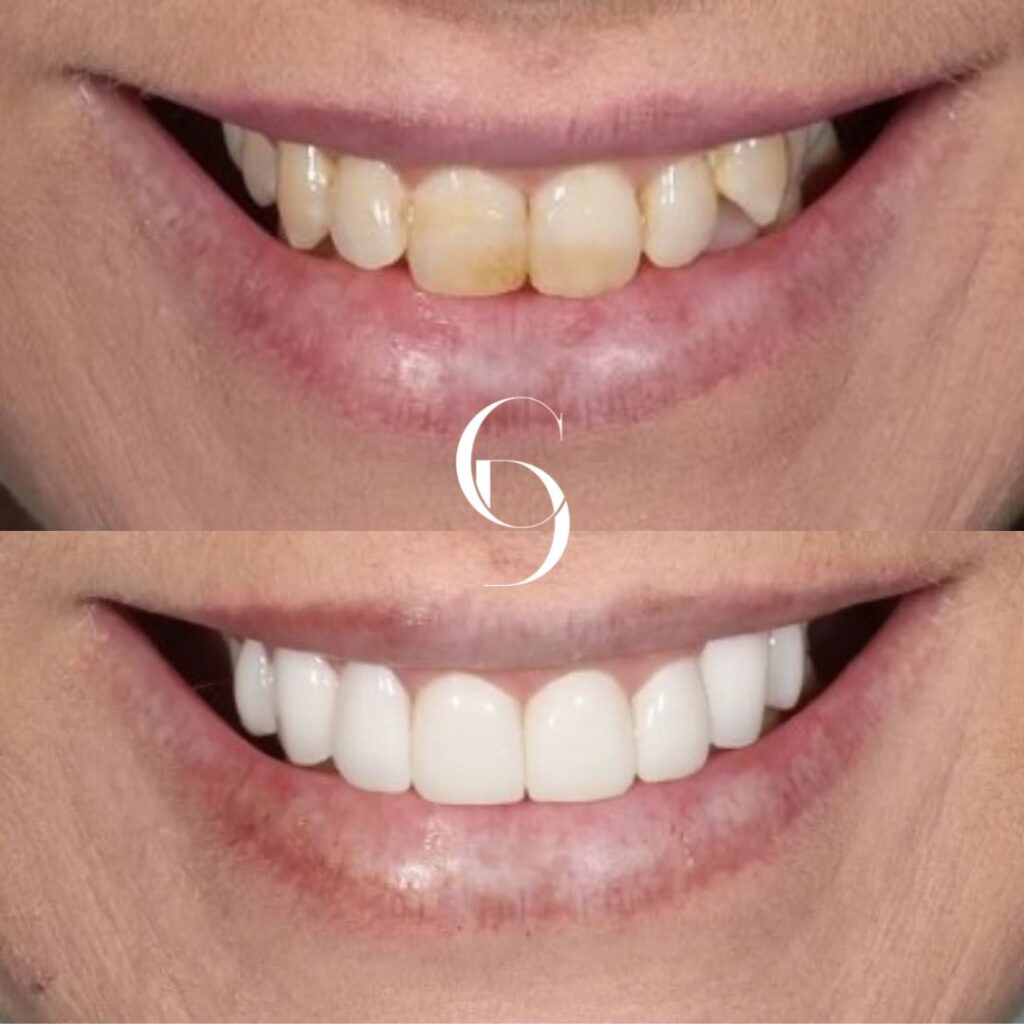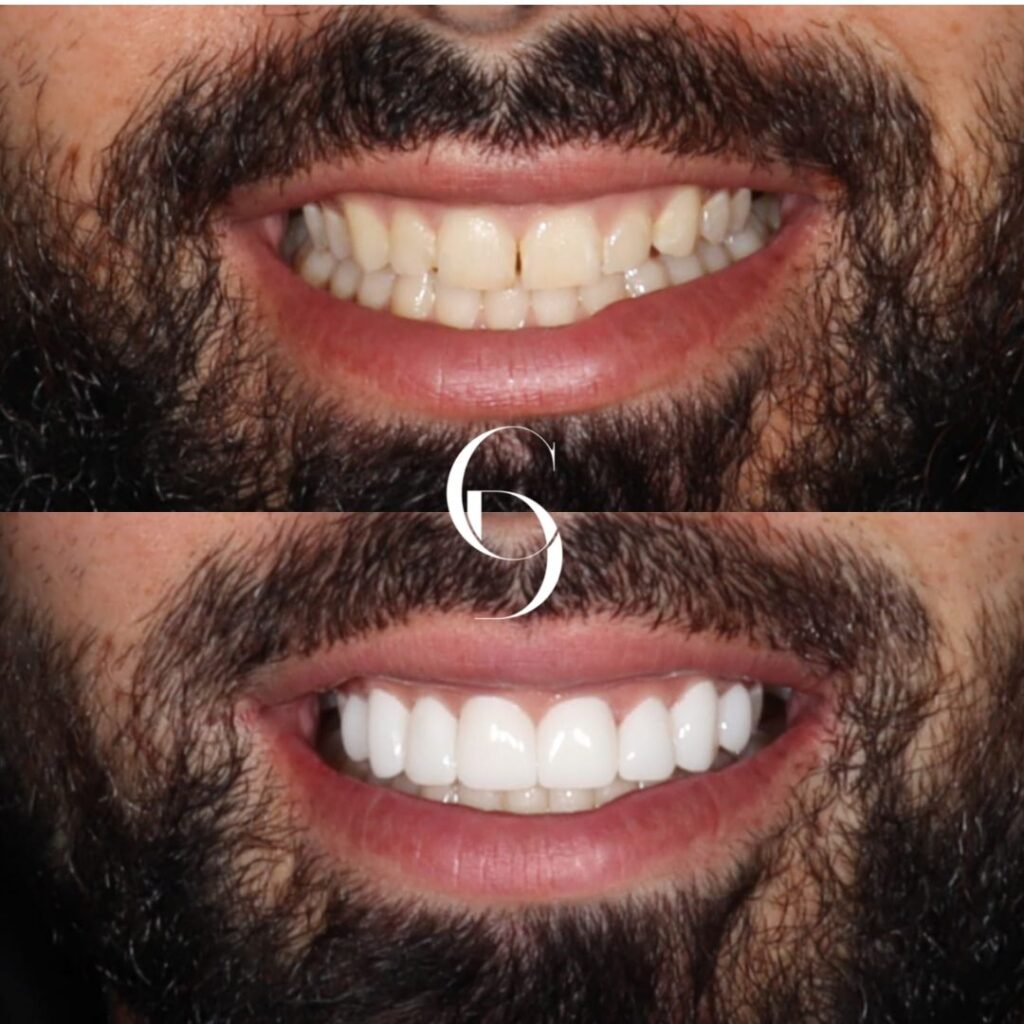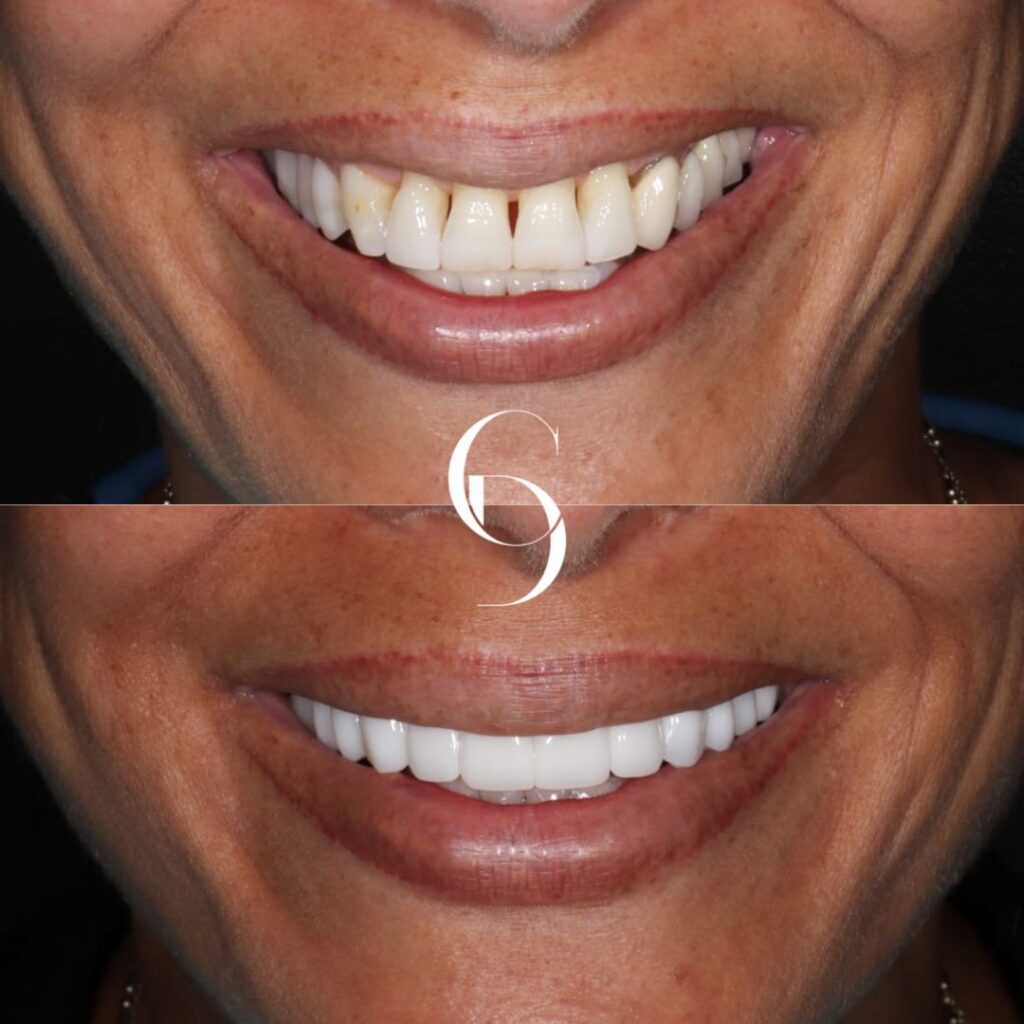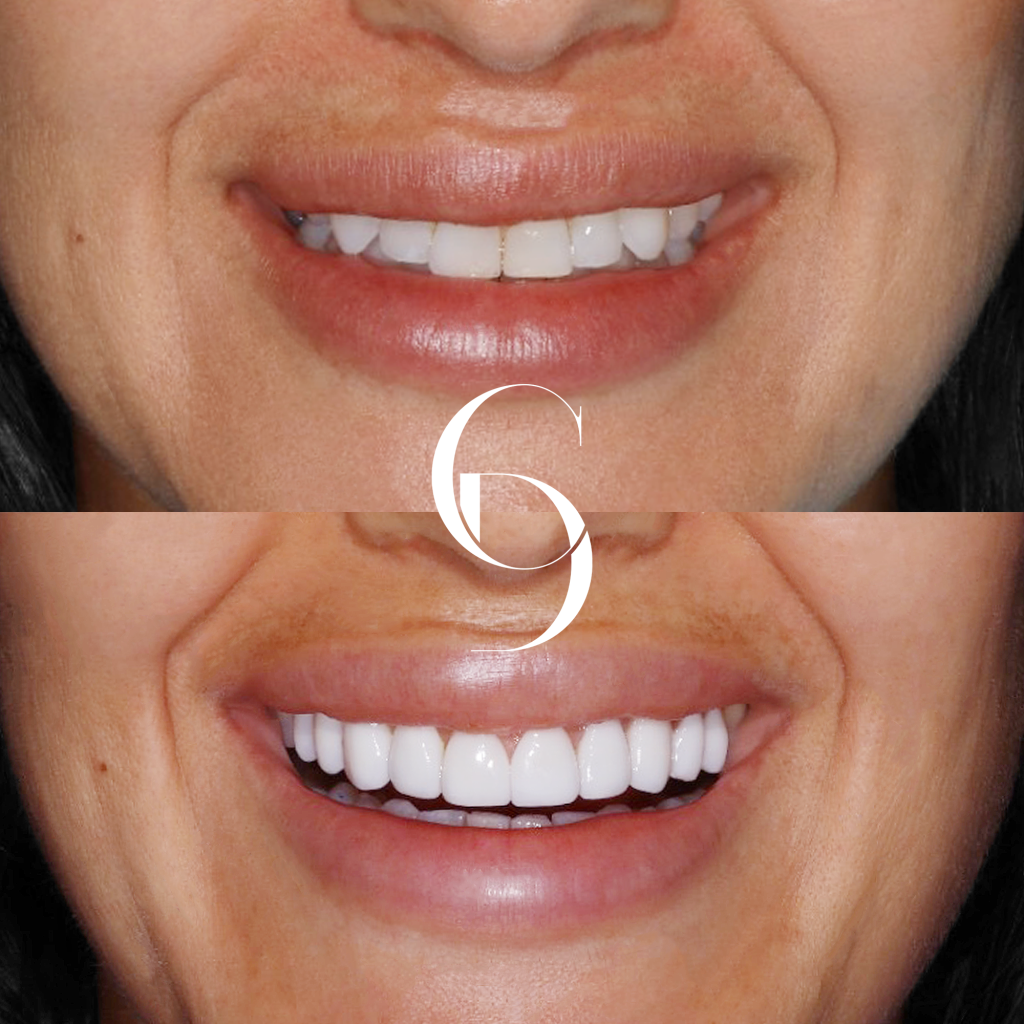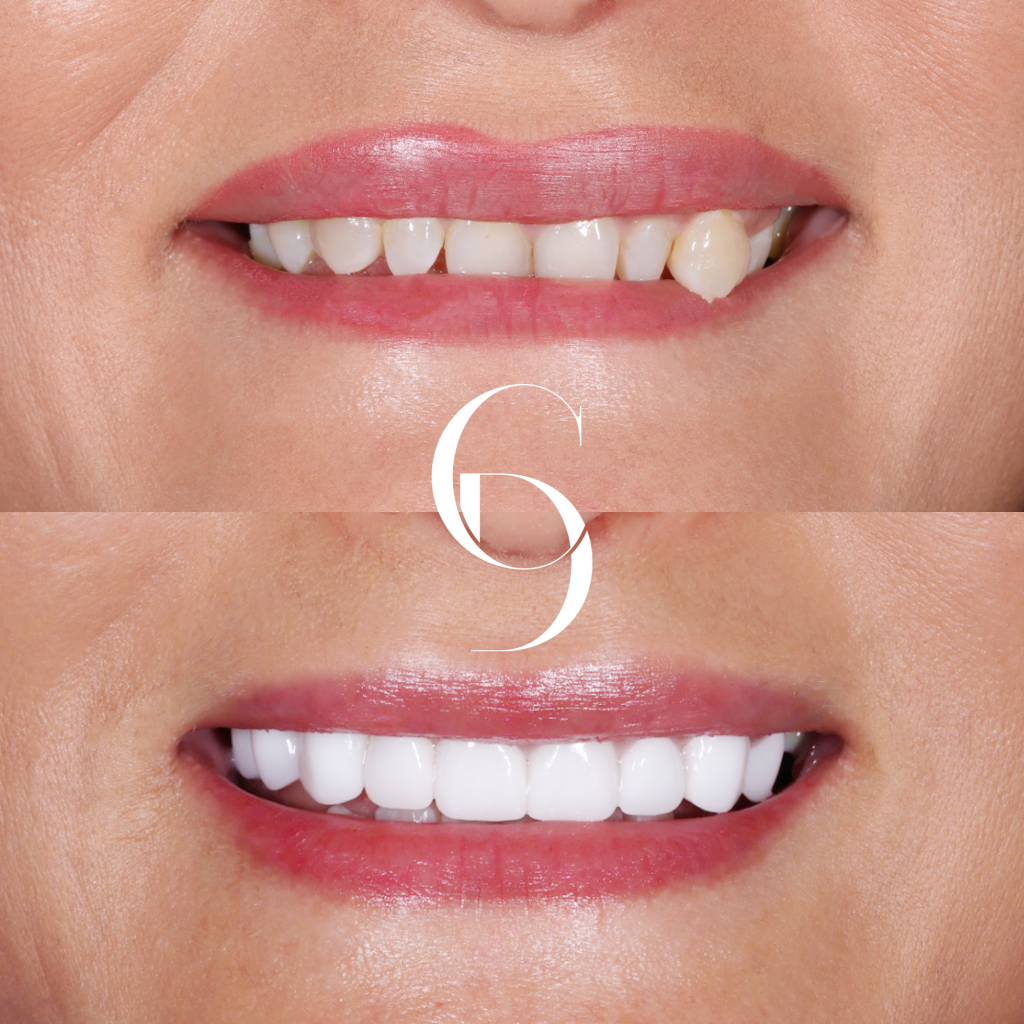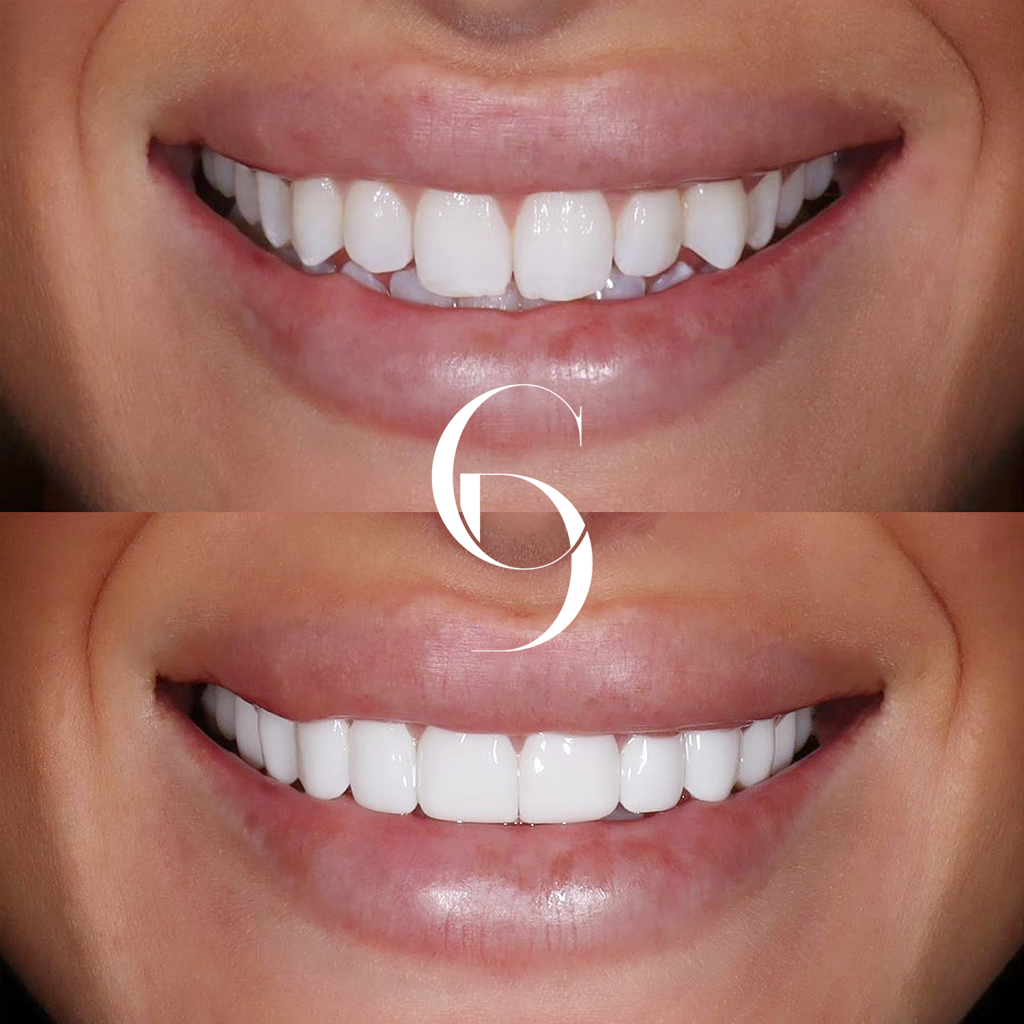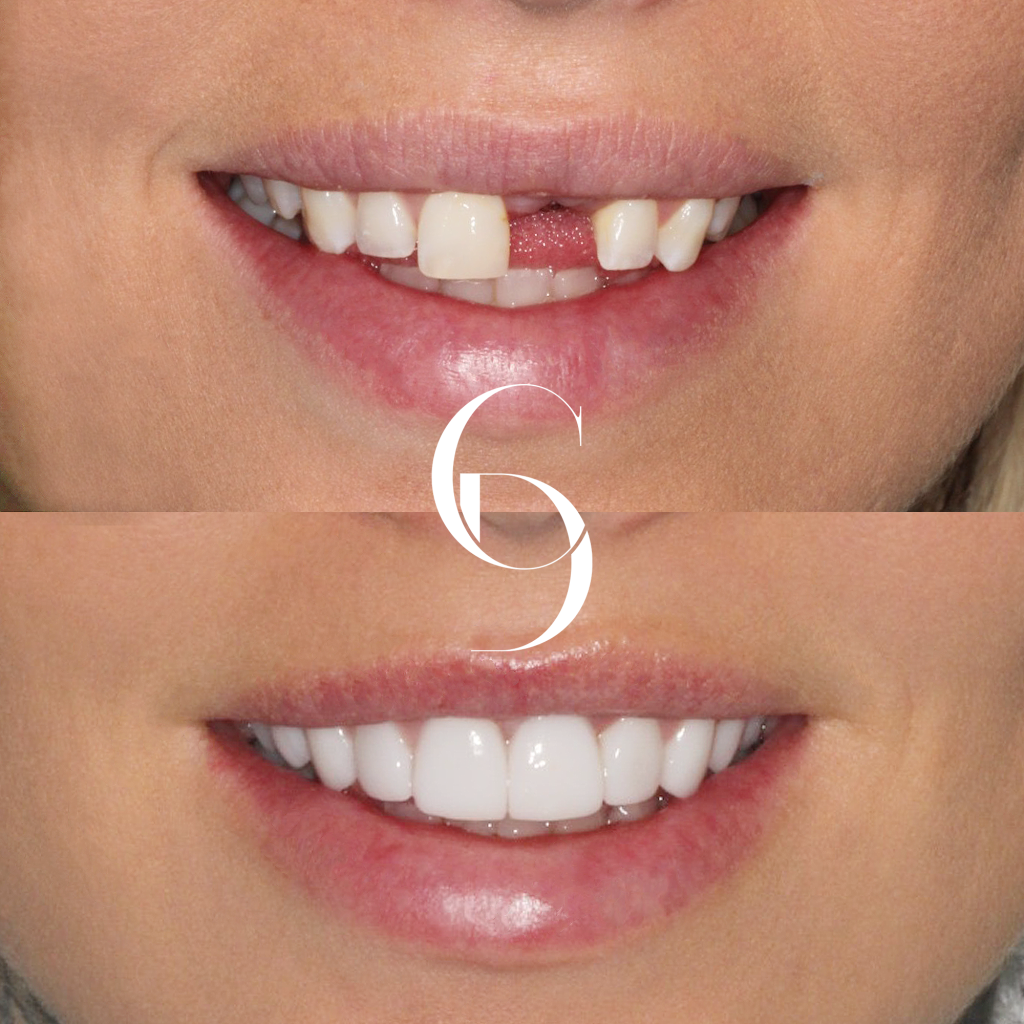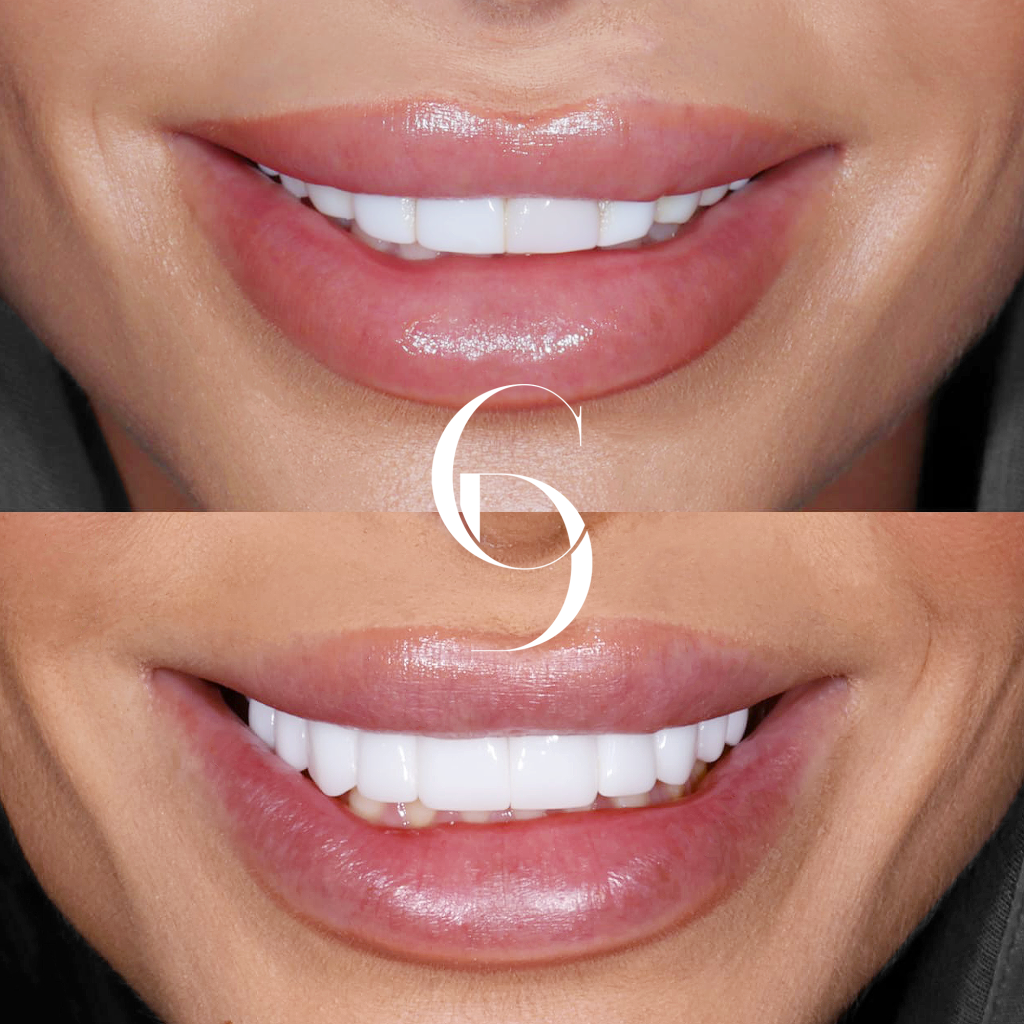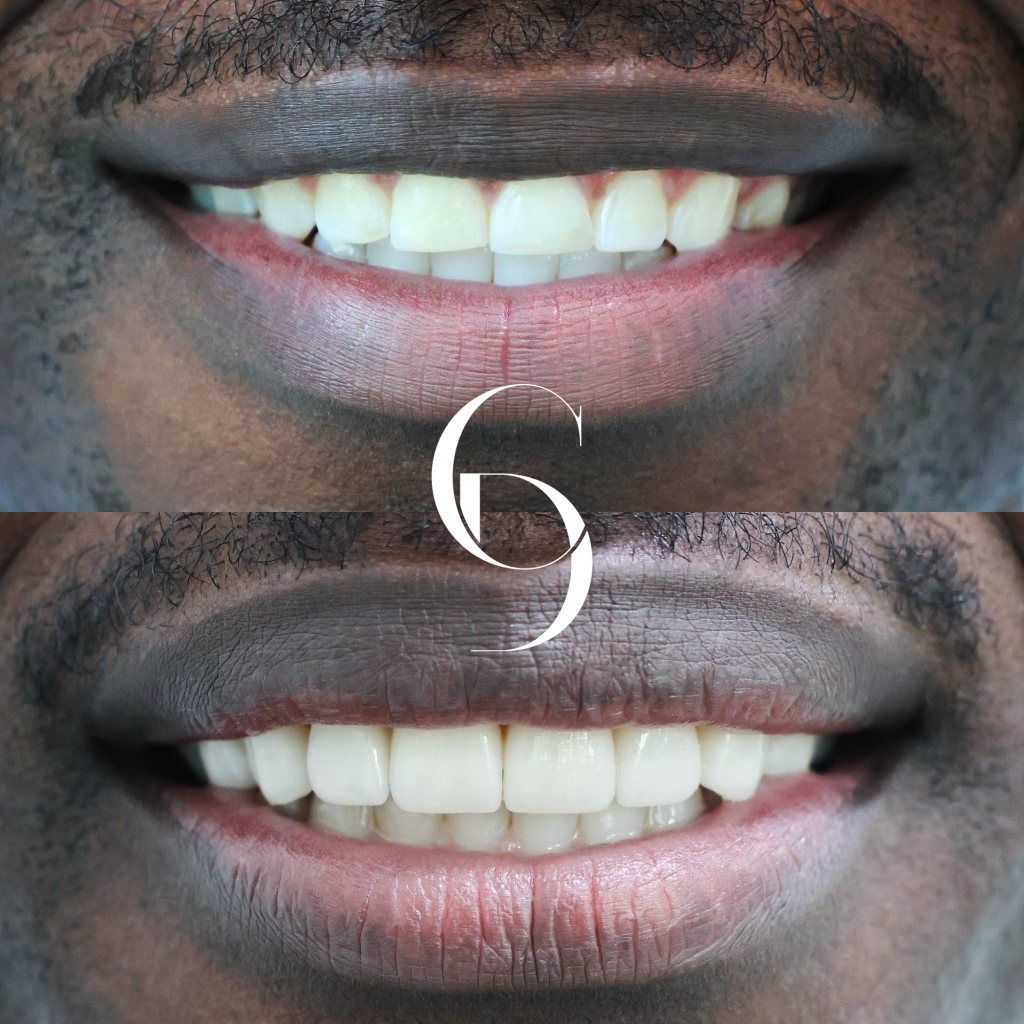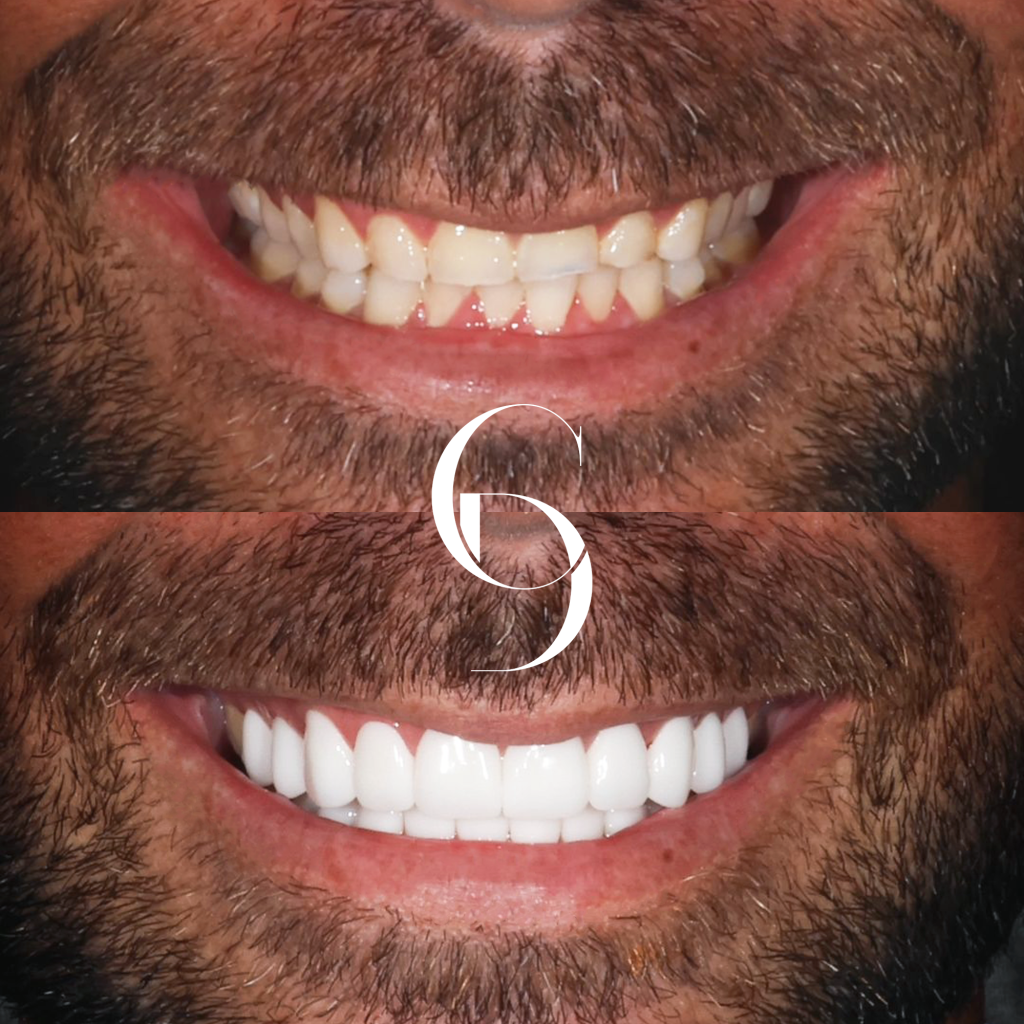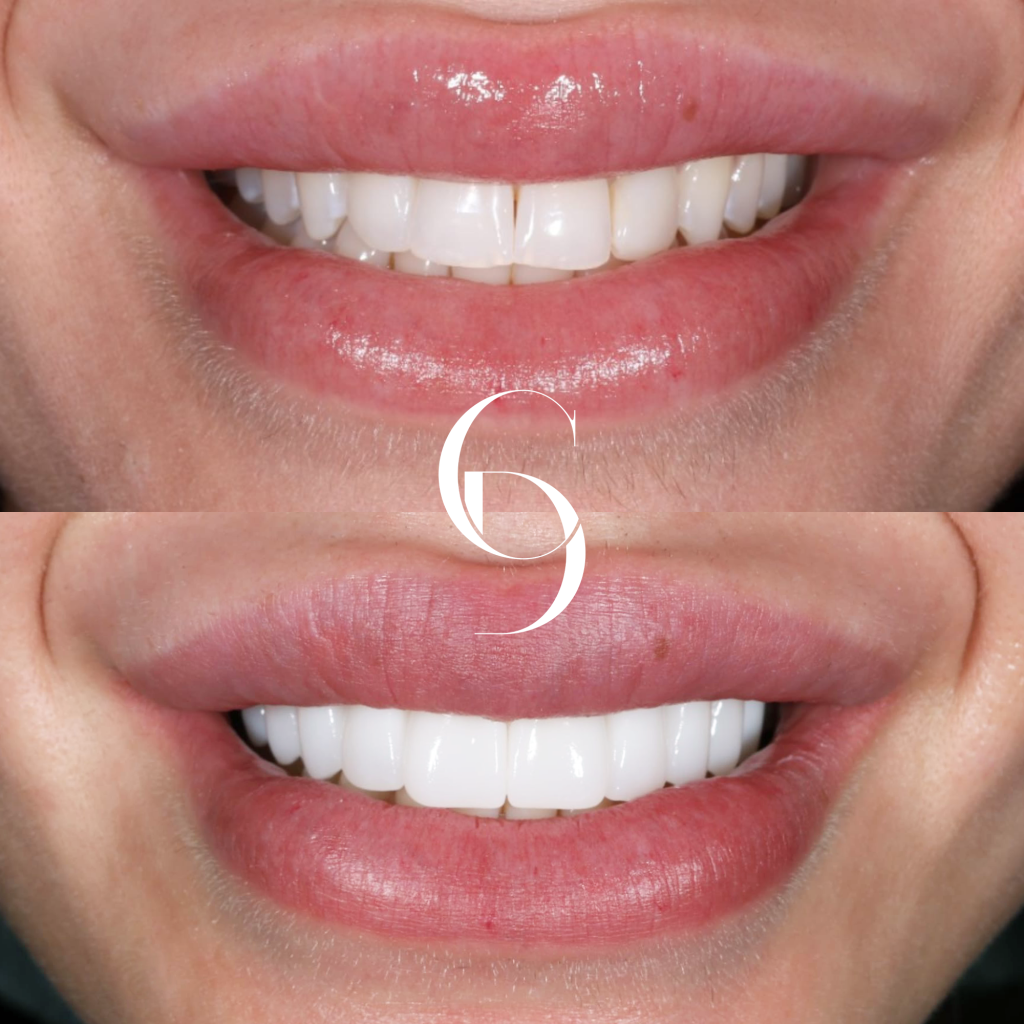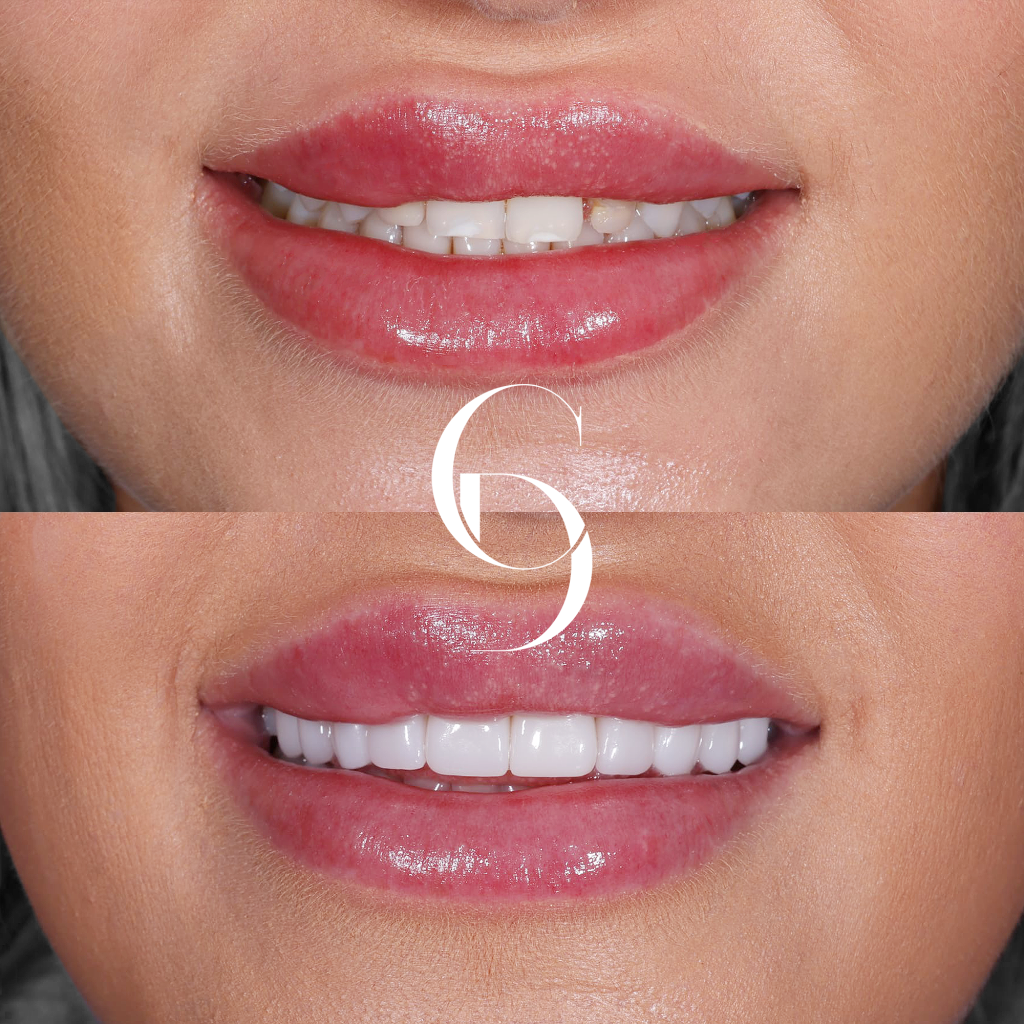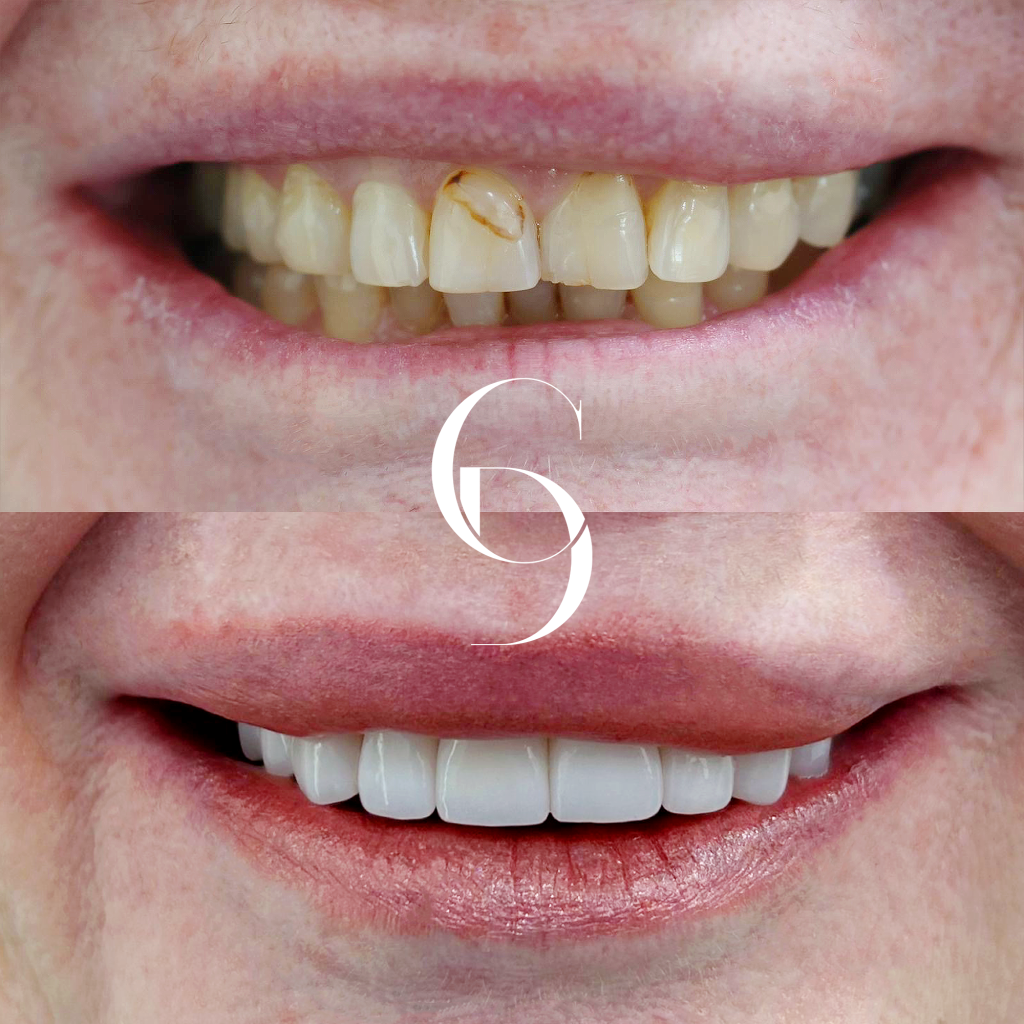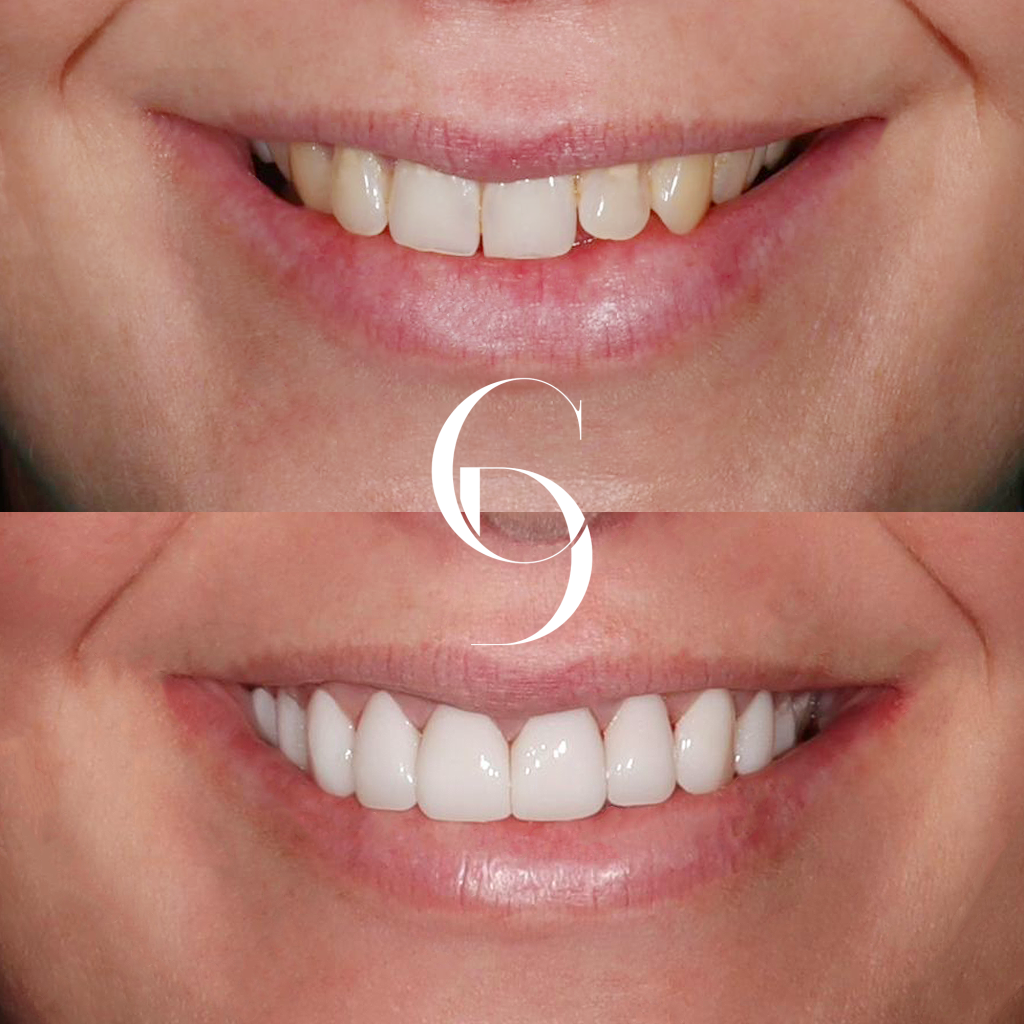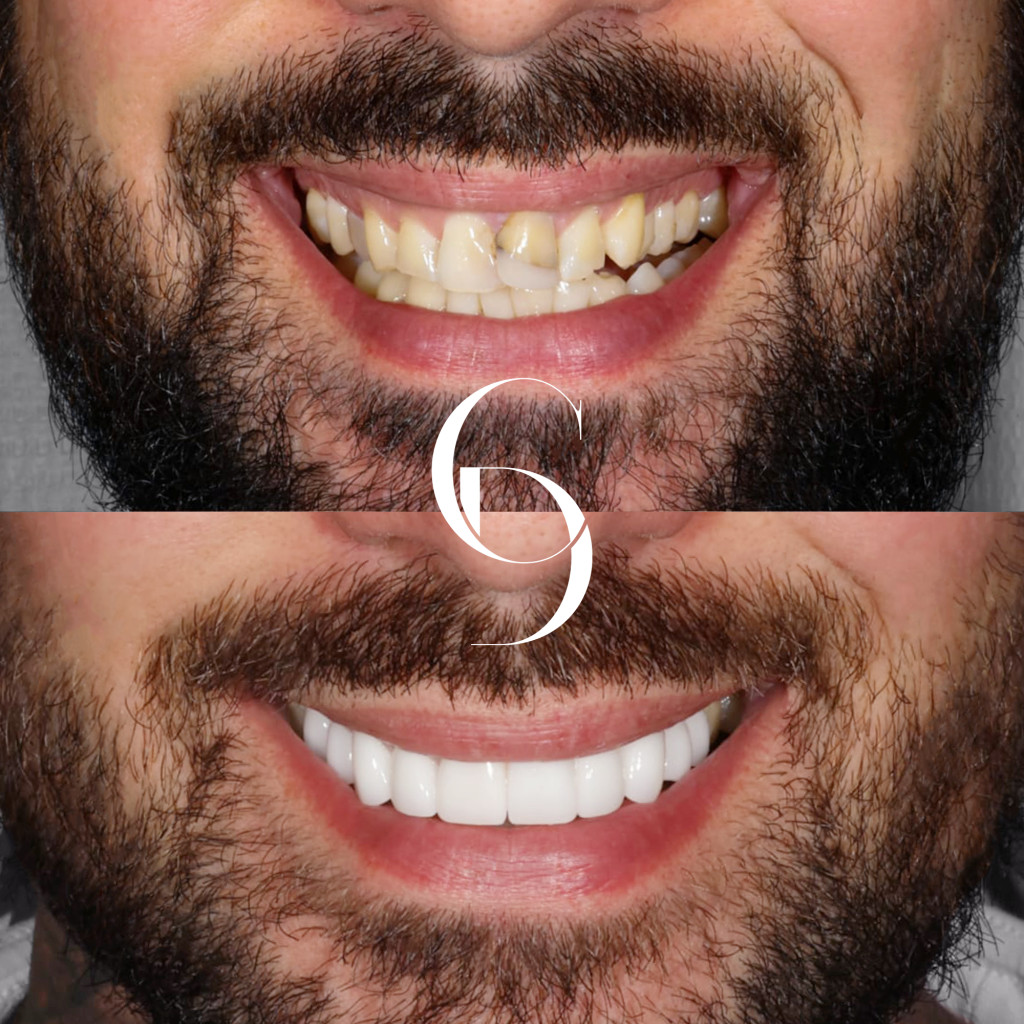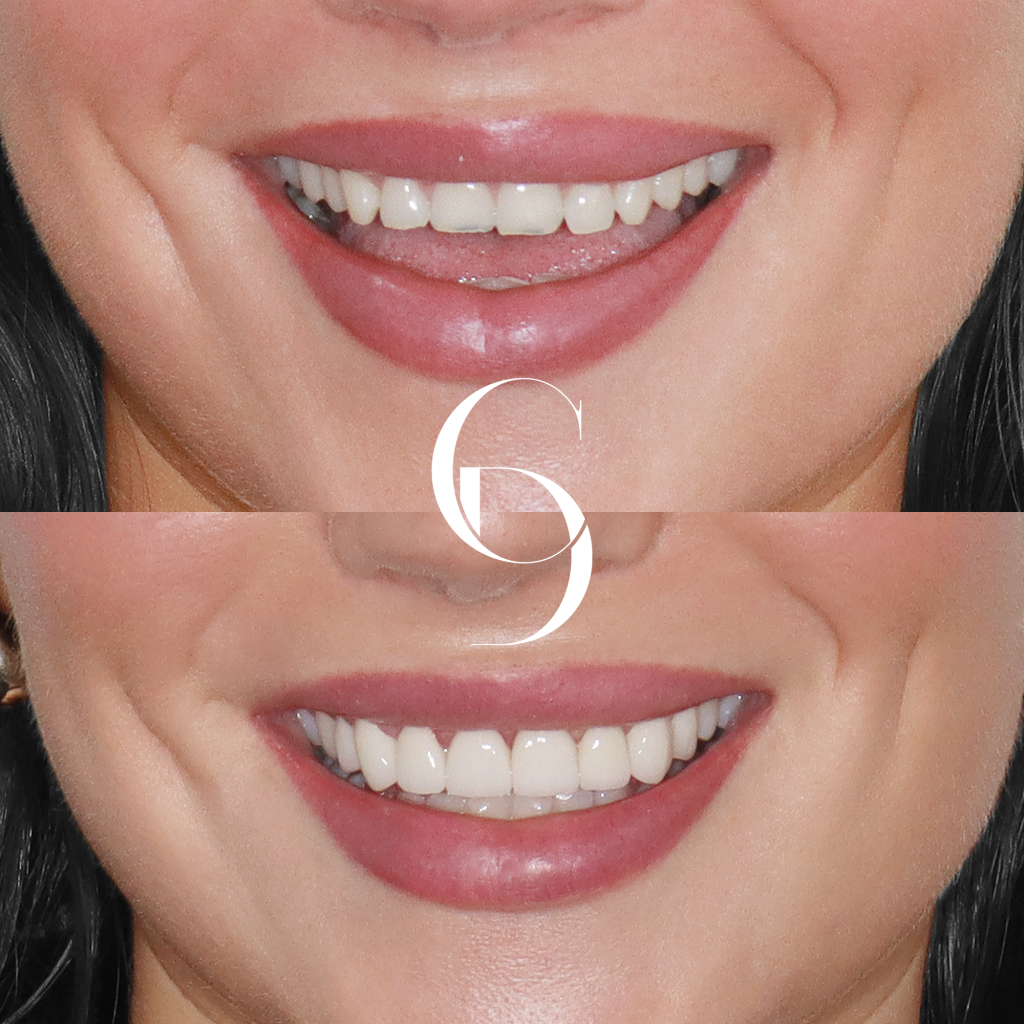Why Choose a Porcelain Dental Crown?
All-ceramic or porcelain crowns mimic the appearance of tooth enamel more than any other crown type of cosmetic dental treatment. They’re a great choice for several reasons:
Durability and aesthetics
Dental crowns use both strength and lifelike translucency. Created by hand at our Sydney clinic, these restorations mirror the hue, shape, and texture of natural enamel, giving you a beautiful result that stands up to daily wear.
Bespoke fit
Your dentist will carefully evaluate the structure of your tooth, minimising preparation and preserving as much healthy enamel as possible. A well-fitted crown for tooth purposes prevents future decay and supports optimal bite mechanics.
In-house experts
Our experienced ceramists, each with over 15 years of experience, work closely with our senior cosmetic dentists. By controlling every step, from initial impression to final polish, we guarantee consistency and perfection in every tooth crown we produce.
Seamless integration
The goal is to create a crown that blends effortlessly with adjacent teeth. By matching shade, translucency, and margin design, your porcelain dental crown becomes virtually indistinguishable from your natural teeth.
The Porcelain Tooth Crown Process
For most patients, we can complete the entire dental crown process within just two visits. Between our dentists and ceramists, we have decades of experience in creating tailored and beautiful porcelain restorations and smiles.
Complimentary consultation
Your journey begins with a 30–45-minute no-obligation consultation (including X-rays). During this appointment, we discuss your goals, evaluate the compromised tooth, and review all treatment options, whether a single tooth crown or other cosmetic dentistry services.
Preparation and temporary crown
Under local anesthesia, your dentist will gently refine the affected tooth. An accurate digital scan or impression is captured, and a custom temporary crown is placed. This provisional restoration protects the tooth while allowing you to evaluate fit, shape, and colour.
Lab fabrication
Our dentists will use their expert skill with reliable technology to handcraft your crown for tooth. By closely collaborating with your dentist, they ensure the restoration mimics natural contours and occlusion, creating the perfect crowns teeth solution.
Final placement
During your second visit, the temporary crown is removed and replaced with your bespoke porcelain tooth crown. Your dentist will carefully check margins, contacts, and aesthetics, making any adjustments to ensure unparalleled comfort and function.
Aftercare and maintenance
We provide thorough aftercare instructions to protect your new restoration. With regular check-ups and good oral hygiene, a porcelain crown can last over a decade, safeguarding your smile against further damage.
How Long Does the Crown for Tooth Process Take?
Most patients complete their porcelain crown treatment in just two visits:
- Visit 1 (Consult & Prep): Evaluation, tooth preparation, digital scan, and placement of a temporary crown.
- Visit 2 (Final Crown Placement): Removal of the temporary, fitting, and cementation of your permanent crown.
Dental Crown Costs & Payment Options
The total cost for a single porcelain crown depends on factors such as material choice and the complexity of the tooth’s condition. At Cosmetique Dental, we strive to make premium cosmetic dentistry services accessible:
- Interest-Free Plans: Starting from as little as $57 per week, so you can invest in your smile without financial strain.
- Traditional Financing: Competitive interest-bearing options to suit diverse budgets.
- Pay-by-Super: Use your superannuation to cover treatment expenses, making it even more convenient.
Our pricing remains lower than high-end cosmetic dental clinics, without compromising on quality. We believe exceptional tooth crown restorations should be within reach.
Our Commitment to Excellence for Every Dental Crown
Over 100,000+ Satisfied Patients: Join the ranks of patients who have experienced superior smile transformations with Cosmetique Dental.
2,000+ Five-Star Reviews: Across all locations, including North Sydney, Bondi Junction, CBD, Parramatta, and more. Our reputation for exceptional service speaks volumes.
Collaborative Smile Designing: As your dedicated “smile designer,” we involve you at every step: colour selection, shape mapping, and final design, ensuring a crown for tooth that aligns perfectly with your expectations.
Comprehensive Cosmetic Dentistry Services: Beyond crowns, we offer everything from full dental implants to smile restoration, ensuring your oral health and beauty goals are met under one roof.
Ready to Restore Your Smile with a Tooth Crown?
If you’re seeking a durable, natural-looking dental crown solution, Cosmetique Dental’s expert team is here to guide you. Our modern facilities, in-house lab, and flexible payment plans make it easy to prioritise your oral health and confidence.
Book your free consultation today and discover how a porcelain dental crown can transform your smile. Let our skilled dental team create a restoration that blends seamlessly, functions flawlessly, and radiates the confidence you deserve.
